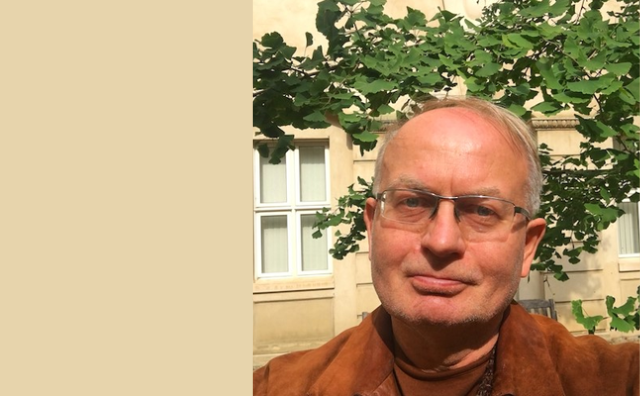Ian Rutherford, Professor of Classics at Reading, has been elected a fellow of the British Academy, the most prestigious body of humanities scholars in the UK.

The British Academy is the UK’s national academy for the humanities and social sciences, the equivalent of the Royal Society for the sciences; around 50 UK fellows are elected each year, normally only one or two per subject and only after a rigorous evaluation from the top scholars globally in each discipline.
Professor Rutherford’s election gives Reading Classics two Fellows of the British Academy, the other being Professor Eleanor Dickey; this is the only Classics department outside Oxford and Cambridge to have more than one Fellow in post. The accolade is particularly striking given that Reading Classics is a small department, the smallest Classics unit submitted to the most recent REF. Professor Amy C. Smith, co-head of the department, commented:
“This is well-deserved recognition of Professor Rutherford’s continued excellence and significant contribution to so much academic discourse on cultural contact, religion, and literature in the ancient Mediterranean.”
Rutherford’s colleagues are excited about his election. Research Division Lead, Professor Emma Aston, commented:
“The academic community of Reading Classics has been immeasurably enriched by Professor Rutherford’s research, in ways that go beyond his publications (important as those are). When colleagues describe their research projects; when a visiting speaker delivers a paper; when a postgraduate student gives a presentation: Professor Rutherford’s enthusiasm and interest are unflagging and utterly sincere. This intellectual generosity has helped and supported countless scholars, both emerging and established, over the years, and it is for this reason that I am especially delighted to see him receive this prestigious recognition of his contribution to the field.”
Rutherford has published four monographs, nine (co-)edited volumes, and over 100 articles. In his work he tries to address broad problems in the study of the ancient world relating to religious experience, mobility, and cultural interaction in the Ancient Mediterranean and Ancient Western Asia.
Rutherford’s work covers three main areas. First, he has a long-standing research interest in ancient Greek poetry. His first major book was a ground-breaking study of the “Paeans” (Hymns to Apollo) by the Greek poet Pindar, published in 2001. These poems or songs were composed in the 5th century BC, but most of our knowledge of them comes from papyrus fragments discovered in Roman Egypt. He has also co-edited an influential collection of essays on Wandering Poets in Ancient Greece (2009), and he is a founding member of the Network for the Study of Archaic and Classical Greek Song.
His second area of interest is ancient religion. In particular, he pioneered the study of pilgrimage and sacred travel in pre-Christian antiquity at a time when many scholars doubted that such a thing existed. He devoted a major monograph – State Pilgrims and Sacred Delegates (2013) – to sacred delegations sent to festivals and sacred places in the Greek world; he also co-edited a collection of essays on ancient pilgrimage, Seeing the Gods (2006). His main project at the moment is a study of pre-Christian pilgrimage in Greco-Roman Egypt, using ancient graffiti as evidence.
Thirdly, he is interested in contact between early Greece and other cultures, particularly Ancient Anatolia (Türkiye) and Egypt. On Anatolia, he recently published a monograph assessing the evidence for early religious contact with Greece (Hittite texts and Greek religion: Contact, Interaction, Comparison (2020)), and he has co-edited two collected volumes: Anatolian Interfaces (2007) and Luwian Identities (2013). On Egypt, he has argued that Greek writers may have known much more about Egyptian literature than is generally believed, and known it earlier; this was the theme of a collection of essays he edited, Greco-Egyptian Interactions: Literature, Translation, and Culture, 500 BC-AD 300 (2016).
For Rutherford, research has always been closely linked to teaching: he regularly teaches undergraduate and taught post-graduate units on all these subjects, and believes not only that research should inform teaching, but also that he learns from discussion with students. Rutherford commented on his election “This was a complete surprise, and I still can’t quite believe it, but it’s an incredible honour.”

